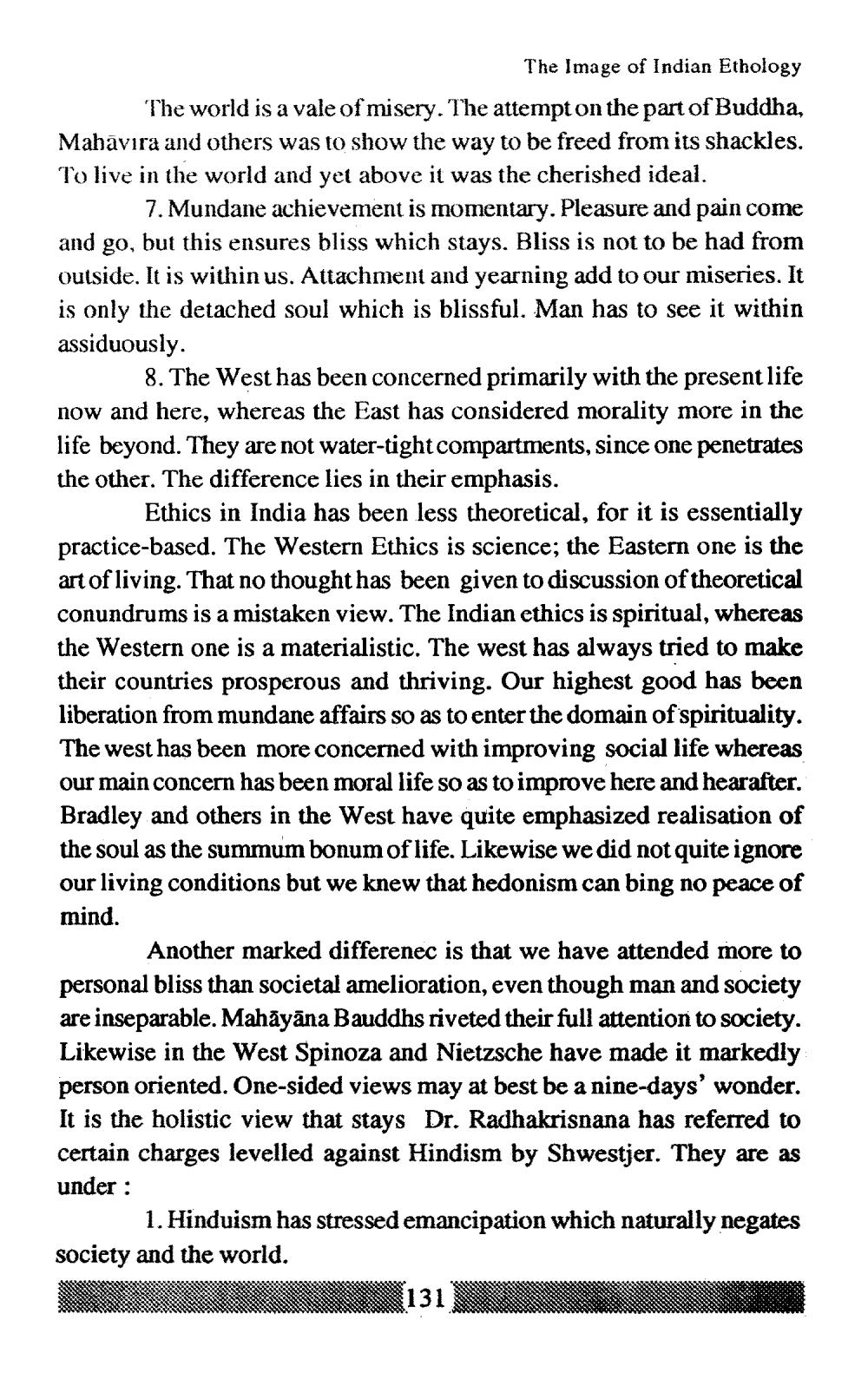________________
The Image of Indian Ethology
The world is a vale of misery. The attempt on the part of Buddha, Mahāvira and others was to show the way to be freed from its shackles. To live in the world and yet above it was the cherished ideal.
7. Mundane achievement is momentary. Pleasure and pain come and go, but this ensures bliss which stays. Bliss is not to be had from outside. It is within us. Attachment and yearning add to our miseries. It is only the detached soul which is blissful. Man has to see it within assiduously.
8. The West has been concerned primarily with the present life now and here, whereas the East has considered morality more in the life beyond. They are not water-tight compartments, since one penetrates the other. The difference lies in their emphasis
Ethics in India has been less theoretical, for it is essentially practice-based. The Western Ethics is science; the Eastern one is the art of living. That no thought has been given to discussion of theoretical conundrums is a mistaken view. The Indian ethics is spiritual, whereas the Western one is a materialistic. The west has always tried to make their countries prosperous and thriving. Our highest good has been liberation from mundane affairs so as to enter the domain of spirituality. The west has been more concerned with improving social life whereas our main concern has been moral life so as to improve here and hearafter. Bradley and others in the West have quite emphasized realisation of the soul as the summum bonum of life. Likewise we did not quite ignore our living conditions but we knew that hedonism can bing no peace of mind.
Another marked differenec is that we have attended more to personal bliss than societal amelioration, even though man and society are inseparable. Mahāyāna Bauddhs riveted their full attention to society. Likewise in the West Spinoza and Nietzsche have made it markedly person oriented. One-sided views may at best be a nine-days' wonder. It is the holistic view that stays Dr. Radhakrisnana has referred to certain charges levelled against Hindism by Shwestjer. They are as under:
1. Hinduism has stressed emancipation which naturally negates society and the world.




